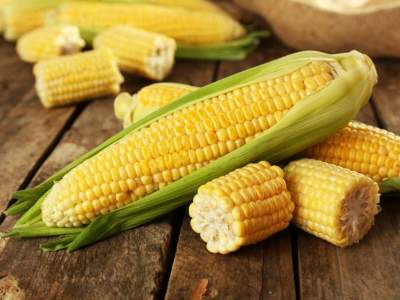Health Alert: Drinking Water While Eating Corn Could Pose Risk; Here's Why
By Lokmat English Desk | Updated: June 14, 2024 11:57 IST2024-06-14T11:56:32+5:302024-06-14T11:57:51+5:30
As the rainy season sets in, markets are now brimming with maize, a favorite choice often served with lemon ...

Health Alert: Drinking Water While Eating Corn Could Pose Risk; Here's Why
As the rainy season sets in, markets are now brimming with maize, a favorite choice often served with lemon and salt. This seasonal delight not only tantalizes taste buds but also packs a nutritional punch, providing essential nutrients like vitamin C, vitamin B-12, calcium, and fiber. Enjoying corn during this time not only enhances flavor but also offers health benefits that contribute to overall well-being.
After consuming corn, it's a common experience to feel thirsty, yet conventional wisdom advises against drinking water immediately afterward. Many believe that drinking water after eating corn can induce fever. However, it's essential to explore whether this belief holds any scientific merit and understand the reasons behind this caution.
Experts caution against drinking water immediately after consuming corn due to its potential impact on stomach health. The rationale behind this advice is that corn contains complex carbohydrates that can slow down digestion and cause stomach discomfort, including pain and bloating. This delay in digestion may also contribute to the buildup of gas in the stomach. Therefore, it's recommended to allow some time for corn to digest fully before consuming water to avoid these potential digestive issues.
To mitigate issues like bloating and gas, it's advisable to avoid consuming water immediately after eating corn. Experts suggest waiting approximately 45 minutes after consuming corn before drinking water. This delay allows for better digestion of the complex carbohydrates present in corn, reducing the likelihood of digestive discomfort such as bloating and gas.
When enjoying corn, especially during the rainy season, it's important to be mindful of certain precautions. Corn is abundant during this time, but the body can be more susceptible to diseases in such environments. Therefore, it's crucial to ensure the corn is clean and properly cooked to avoid potential health risks associated with contaminated or undercooked maize.
It is recommended to consume fresh and hot corn to avoid potential risks associated with bacterial growth. Storing corn for extended periods can lead to the development of harmful bacteria, which may pose health hazards if consumed. Therefore, enjoying freshly prepared corn ensures safer consumption and reduces the likelihood of foodborne illnesses.